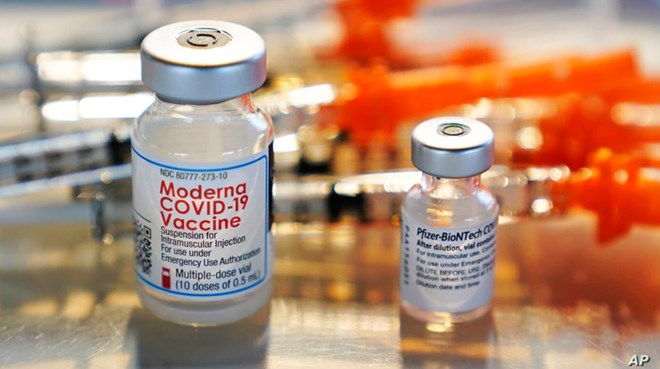
Monday August 23, 2021

Kenya has Monday morning received 880,000 doses of Moderna vaccine from the US, a boost to the ongoing nationwide vaccination programme.
The delivery, which arrived at the Jomo Kenyatta International Airport shortly around 6.15am, follows President Joe Biden’s announcement early this year that Washington DC would share 80 million doses from America’s own stock.
This batch is part of 1.7 million doses that the US promised to donate to Kenya and will be delivered via the Gavi-Covax facility.
advertisements
Kenya has so far received 3,610,100 doses of Covid-19 vaccines.Last week, the country received a donation of 407,000 doses of AstraZeneca vaccine from the UK.
In June, the US listed Kenya among recipient nations of the 500 million Pfizer vaccine doses to be delivered in August.
According to the Health ministry, at least 754,542 people had received their second doses by Tuesday last week.
Doses administered
A total of 2,374,197 vaccine doses have been administered, with 1,595,335 people getting the first dose.
“We are mounting a comprehensive response on Covid-19, vaccines and all the issues related [to it],” the US said in an official briefing.
Monday’s delivery comes amid a raging debate on safety and efficacy of Covid-19 vaccines, including Moderna.
According to the Centres for Disease Control and Prevention (CDC), Moderna vaccine, which it recommended for people above 18 years, has registered cases of myocarditis and pericarditis in adolescents and young adults.
“Cases of myocarditis and pericarditis in adolescents and young adults have been reported more often after getting the second dose than after the first dose of one of the two mRNA Covid-19 vaccines, Pfizer-BioNTech or Moderna,” CDC highlights on its official website.
“These reports are rare and the known and potential benefits of Covid-19 vaccination outweigh the known and potential risks, including the possible risk of myocarditis or pericarditis”.
MRNA stands for messenger RNA (mRNA), the genetic material that tells your cells how to make proteins.
Vaccines are either classified as mRNA or viral vector. The difference is that mRNA is surrounded by tiny lipids (fatty molecules) which help it enter directly into your cells, and once your cells create the spike proteins, your body breaks down the mRNA.
For viral vector vaccines, spike protein DNA is placed inside a modified version of a different virus that doesn’t cause illness.
This non-harmful virus delivers the DNA instructions to your cells. This virus is called the vector.